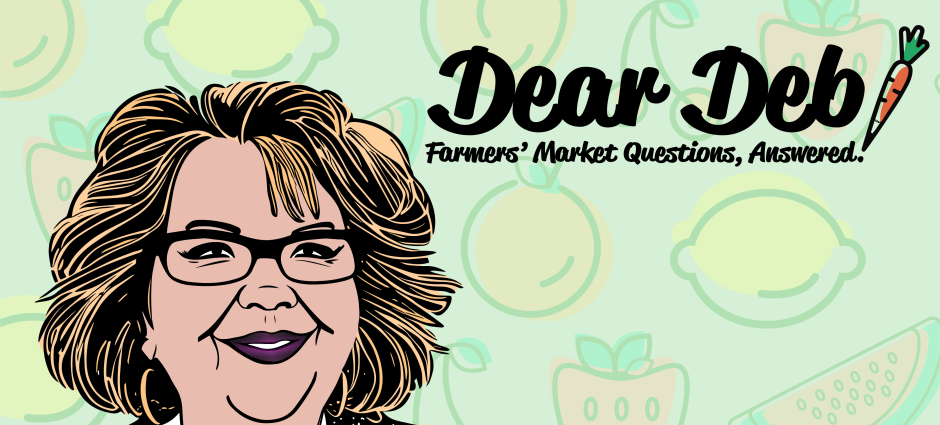Dear Deb - November
Dear Deb: Why do some farmers’ markets stay open year-round, and others don’t? – Julie, San Mateo
Dear Julie: There are many factors that influence whether a farmers' market operates year-round or seasonally. Many factors are closely intertwined and provide the background for the decision to be a year-round or seasonal market.
Market Viability and Weather:
- Financial Constraints: Maintaining a market during off-seasons can be financially challenging for vendors, especially when inclement weather reduces foot traffic.
- Customer Preference: Some customers are dedicated to supporting local farmers year-round, while others may prefer to stay indoors during colder months.
Seasonal Produce and Vendor Participation:
- Crop Cycles: The availability of fresh, seasonal produce fluctuates throughout the year. During the off-season, farmers may focus on replenishing their stock, repairing equipment, and planning for the next growing season.
- Vendor Offerings: Markets with a diverse range of vendors, including those offering products like meats, dairy, baked goods, and preserved foods, may be more likely to operate year-round.
Market Infrastructure and Local Regulations:
- Market Facilities: Year-round markets often require additional infrastructure, such as heated spaces or covered areas, to accommodate vendors and customers during colder months.
- Local Regulations: Zoning laws and permit requirements can also impact a market's ability to operate year-round
Ultimately, a combination of these factors determines a market's operational schedule. Farmers and PCFMA work diligently to provide fresh, local produce throughout the year, but sometimes seasonal limitations and practical considerations necessitate adjustments. We appreciate your support of local farmers and farmers' markets.

